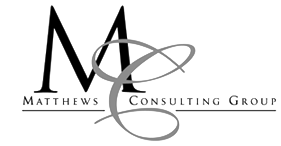"MCG Helped Us Stand on Our Own"
“MCG does not foster dependency. Instead, they helped us stand on our own – building our capability and capacity. As a result, I tell everyone that a strategic plan shouldn’t be a document that sits on a shelf. Instead, it should be your leadership guide. For us, it’s a living, breathing thing. Our plan became dog-eared because we always carried it with us. It meant that much. MCG helps non profits grow. Had we not gone through the strategic planning process with them and created our business plan, we would not be here today.”
Dr. Dave Ross, Director
Problem
A program of The Task Force for Global Health, the Institute was created through a funding vision focused on supporting children’s immunization. The Institute’s efforts were successful and the program built wide respect for its work, but after the funder’s goals were achieved, funding ceased.
The individuals who helped achieve the funder’s vision wanted to broaden the organization’s focus from immunization to improving the health of children, but their efforts were scattered. Little thought had been given to the Institute’s ongoing work or how to transition current staff into new roles. Aside from a strong commitment to improving children’s health, there was no plan for creating a sustainable future.
How MCG Helped
MCG first conducted a staff assessment, which revealed the Institute’s need for focus and organization. Next, MCG was retained to help the organization develop a strategic plan. MCG carefully guided the Institute’s staff and leadership through a process that conceptualized the Institute’s mission and role within the public health sector. Reaching consensus on a clear-cut mission helped to affirm the staff’s commitment to developing an organization that would continue to tackle issues that addressed an important social purpose. Affirming the staff’s priorities also helped to increase their commitment and understanding around the value of a strategic plan.
Using a thoughtful methodology, MCG carefully guided the Institute’s staff and leadership through the planning process, creating the traction, buy-in and ownership that are particularly important in nonprofit environments. The Institute emerged from the first engagement with more organization and coordination, internal business processes and a sharpened focus on funders.
Several years later, the Institute retained MCG for a third engagement. This time, the goal was to develop the organization’s next strategic plan based on a more rigorous environmental scan – one that involved external stakeholders and allowed the organization to explore other business opportunities.
Upon completion of the second strategic plan, MCG – in partnership with another Atlanta-based consulting firm, FOCOM, Inc. – helped the Institute develop a business plan designed to apply a thoughtful approach to the consideration of new business and opportunities.
Along the way, MCG also mentored Institute leaders, encouraging them to face their challenges honestly, make hard choices to clarify the organization’s services and offerings, and develop sound business practices to ensure the organization’s short- and long-term sustainability.
Result
As the result of its strategic planning work, the Institute achieved all of the goals it established at the outset of both strategic planning processes. Most important, the MCG-facilitated strategic plans became the basis for a sound business model to diversify the Institute’s funding into five streams. Over the past eight years, the Institute has developed consulting services based on both the strategic and business plans. These plans have increased the organization’s impact in the public health arena, opening the door to a funding stream that has grown from approximately $1.8 million during the 2000-2001 budget cycle to a current annual revenue of about $11 million.

